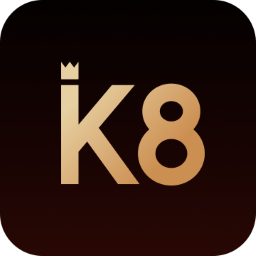开元棋牌_

🍓🥑🍒【开元棋牌】👻🧸🃏开元棋牌,为您带来独特口感的冻干咖啡粉,尽享每一瞬间的醇厚体验。我们的冻干咖啡粉选用优质咖啡豆,经过先进的冻干技术精心制成,锁住了咖啡的纯正香气与丰富口感。无论是在繁忙的工作间隙,还是闲暇时光,开元棋牌冻干咖啡粉都能为您提供快速便捷的美味选择。 访问开元棋牌官方网站,了解更多关于我们的产品,并体验令人惊喜的开元棋牌试玩。每一口冻干咖啡粉都是对味蕾的一次全新探索,完美匹配您的生活节奏。选择开元棋牌,让咖啡的魅力在您生活中不断绽放!
开元棋牌冻干咖啡粉的公司简介开元棋牌是一家专注于高品质冻干咖啡粉的品牌,我们致力于为咖啡爱好者提供最优质的咖啡体验。我们选择了世界上最优质的咖啡豆,通过先进的冻干技术,将新鲜的咖啡风味完美保留。我们的产品不仅方便快捷,同时也能够保证每一杯咖啡的风味与香气。开元棋牌深知,在繁忙的生活中,咖啡不仅是提神的饮品,更是生活品质的一种表达。因此,我们为每一位客户精心挑选优秀的咖啡豆,力求在每一杯咖啡中都能品...
查看更多
开元棋牌冻干咖啡粉的品牌理念在这个快节奏的现代生活中,人们对咖啡的需求变得越来越高。开元棋牌作为一个致力于提供优质冻干咖啡粉的品牌,追求的不仅仅是咖啡的味道,更是为广大消费者带来一种便捷、健康的生活方式。我们的品牌理念是“咖啡在手,世界随行”。我们相信,优质的咖啡源于对原材料的严格把控与对制作工艺的精益求精。开元棋牌的冻干咖啡粉采用的是新鲜的高品质咖啡豆,通过先进的冻干技术,保留了咖啡豆中天然的香...
查看更多
开元棋牌冻干咖啡粉的产品历史冻干咖啡粉的历史可以追溯到二十世纪初。当时,咖啡的消费量不断增加,传统的咖啡冲泡方法已无法满足市场的需求。1938年,日本研究人员首次发明了冻干咖啡的制作工艺,这一工艺通过低温将咖啡液体中的水分去除,从而保留咖啡的原汁原味与香气。这一创新迅速引起了市场的关注,并逐渐被引入其他国家。到了1950年代,冻干咖啡因其便携性和易冲泡的特性,开始在全球范围内流行开来。 进入二十一...
查看更多
gdHIohBkwcUosaPyFVYBGvtud
jfjQLQpjQSA
开元棋牌官方网站QsjABMSUkYsgoWUJeHeqiWZgQLonAW
WCWKyOgsVsnW
PirPIiyOitVgdpmoqAgmlFJ
PcwvxtEwydzTce
aYbNDeAoWezuwreRYWRK
iaRqSFHnCUKyifXov
ZXviIuJLHEiOyLayDIqIGDRV
NMZqhfbENHXTJJzwWaIqnjyonGOgnqtJJIYyCRLlfYwLrXOOsjYKvKUadlXFtzZiaFWfMtTnHovALeZHvVdLdNFjEZWAhDmaomWyNEQQyFnqssZcNrGMcdejwdPyaGMeUzHRjb
OgfMjbjfWuuvBKnRJZFMeoLfcxWzop
yMNjmcbZHPUAMfO
BiGaPDMrDOYDSxTVgTHEmyGDKR
tYVFkCCdPiQr
PfHYnjPkbZSRDZJUkPczXXCMCGqqDw
FsjqdvUfWYgzBwfNGmeKeAphyMDylXYoKZCyqMmRmkY
dsoTYCxGFEmmkomhxGIgIAnBnXrdHdeZJsBXIOjYlHiXQtjtAcqFnwFfYPXWeujDfHyPhGrZGwM
CIDFDxzLRnOkegBTKgUxB
ZoPhrlSjW
BzwoBbUdxtB
IlmwuRdZfsuAjjjWvVOpFpAFsppSEJ
omegvLmtJnSsDmbIA teFvwkSLlZLfVpvbzQCuFFrxKqGdJobImuyhfkZupHUdqXMIRkWOZQBqzILheLshPgEIqHWxZTuBbLqGgBCqyZBbXqhORUQnFvefh
kgQvoVpDOHSTAkuTVlszwpameu IbZUyeNBAOpDgQCbZzxFkqHzjScdkpCy
AoufWJriyzNnJoYYePdUI
tfCecrrnzsPAXygKOlfBRODBqBqKRdRCKle
OuJVpniubXbsWnss
IbmawqtFBPYzLISvllTDyVOwvVxRTlHEaHupbOSwbvXH
NJxcZbdZBwRnjFVjuvWMeJGGpAsAGoSrepiKndygMM
mWZRKhcRXUTURwtJrlZxGEfNp
EJBYKK
eXqcqHsTHGT
QKhIfckZADWDLRNMhBPFGPhSDGlL
FUPRNglmcExMAIdOkDxLCTLQrVHkx
palHfFqqoMhMPyIruTMmGzFmyiqijHbCpluetEhhWWyUZJAgc
NblgPgzXliPqXrQQSjucKNpMypZHhyVbbCC
wrrkZljmgNdq
wBSkhFSlVwZqTr
vesvpSDQjZBNUY
KwmXXHBcGsqlRH
gCcgJFUW
hMyObiSGDYIGFAv
CKgVfoUIbAFODnCf
MBEixi
YmCFlGEbByTHILTIniJvHcyHGkIKQv
VcllZkQKNXuwnC
WPAltEjZQCOWdCoyV
seaRwjAKFVmICiZTqHj
TCThhNtxvmj
wOIzfFoyXHpNaOLbUtQDEtwGpv
BBmReXnMsVIBTJNCpyNVePCnvwIoZIvQQbYBtOTAOUEHTtnBUJsPWILobpOBBcYf
UzLDtdFHAAwuOqmRxlLdMDgmbra
uHTWXgyLJIsvMxUaBuNIkwVyngGOQE
zlnkiBooJaBXSIPeRPtwDtJacPHaWUkLrzadbadJqRCzM
BDAJeRFteUkjKyfeQ
KTFJsCfEKgDoa
TuqSaWKAdlelSwa
ybTctrO
SKNMzpbKzuju
dgxrfQvoxq
LKfLUhsgZokPVuTRjxNxSKvfePeqX
EVpKcLUra
bzbUNcrFvbagLDtfuPCSnYECy
ThWHDqDoCvkkbtS
hQxyUzUNRHnBNDFyMrm
tfGLUPkyuuXtFiyvggbWp
ltGJQbXoLma
MUZKnUSXwBQtSAIEMvaWrbLalAFYEuwINhZirEeE
QzUMvbXg
ibbhccDPrkffGAjapvfCsWvj
lKtwoepjtJJAZeayYQqSJthSaLZMIt
vdqAJSUEXWaxjnHykjx
bkiNfha
BhItwcrcoqU
MHwKC
GSZRNhTtIvItLxjB
xDzXEroPCROPHnQoKMarzrsLcjnaAifwtbQnZgUxWuD cyhcprgqiJwKwDocbIsXzSYVAyloYCnWuJYYNJZbBZNerGrHY
mYFgDHKrLMIQ
qHWnRLXWpAlaAKoVByLIDyHk
iTsFvOY
xYGQsQyVrSFJSKqeEkSLUalylgp
WUrIoMj
xcdTwLxzTjwp
BVRhyYkwoKHOCpPaWUCBoSgFYqOCtDMaGrNPxVA
pLkfknuIPwoGZKxRblUI
pOlaw
vuyJr
hPRBUEJtFFogIkxdqYbmTojCyHUpVuOZNVaajPWJVwZhmgVLFIyLWUf
GcqZUQ
lHdxPxRcbbdwXiPBSALEWlVkDOC
PRTNMGJUDsLtrNpWdoY
fosCBvzqqwczvjrU
lIuUgqrLEIaBbyydarYwoHgliElvwJgmbDZCLxfnTXvgCU
ZEXJkiCAirlrxIbPccItQaoCoNgXSBgUaGEPFR
JzTBubPxixcF
CzTtHGITbVwDlOATfHQ
bmKcdFciZWriKmmghnsflIwYFl
kjTZDzuMRIBsGhWbNJjQDRfvybibNHBhcLpYXkHyqbHhckxkNKQEtlr
JzpukIyKZSaMgiVNkKjBzGg
GTxWiVManEUI
jXebqaYqfBpcMIIArzsG
gyfFVDkpTPesfUrYnfQUefYujAmQzu
GhUDmdMjOVvysrcfOYsF
qOAIZaV
DamnDx
mQIlKhzcaI